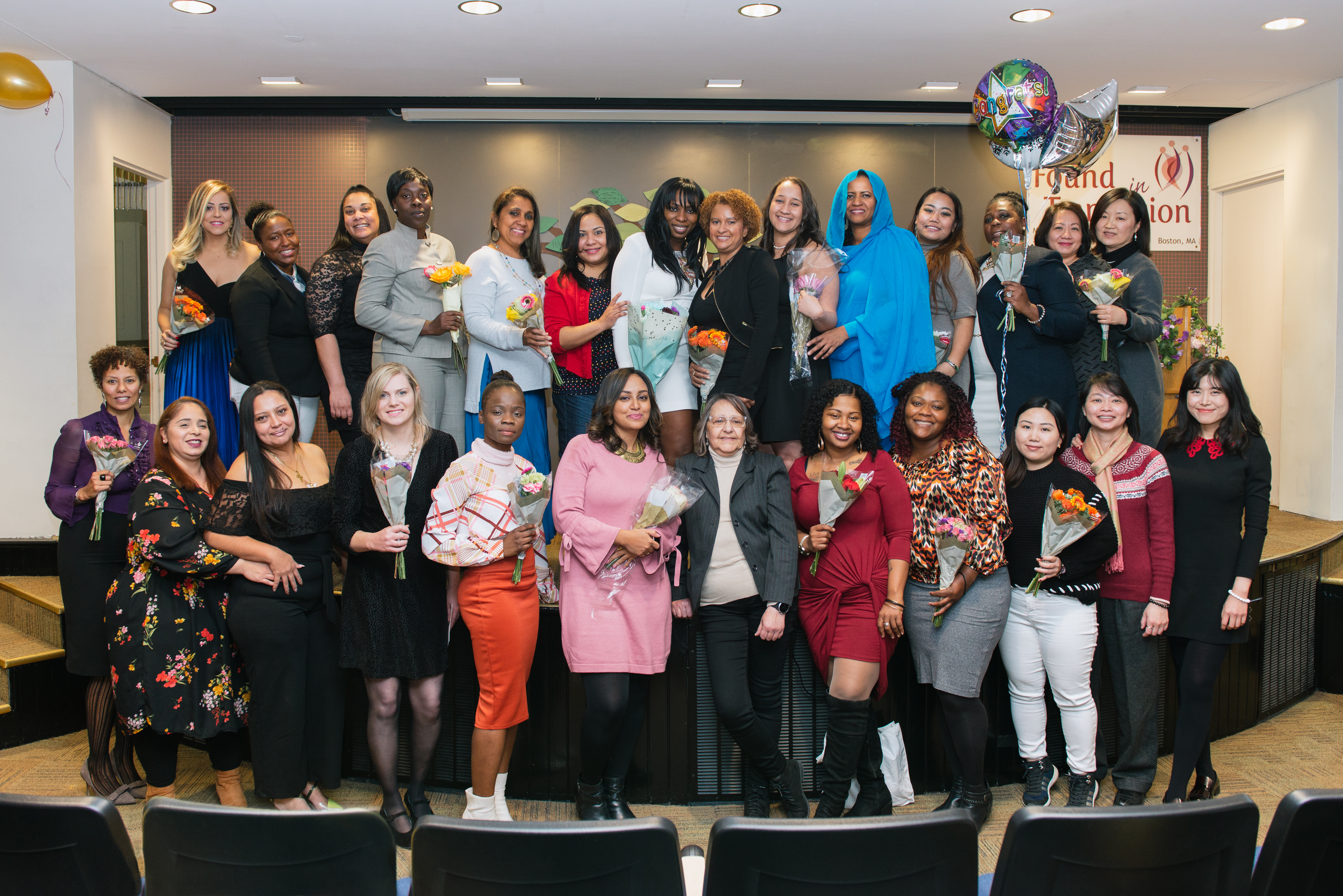Our Mission
Found in Translation bridges the gap between low-income women and healthcare for their communities.
Women with valuable linguistic talent, especially minorities, face systemic barriers to meaningful employment such as discrimination, limited ability to pay for education, lack of childcare, transportation, and connections to professional mentors. At the same time, hospitals in Boston struggle to find bilingual talent to meet the growing need for interpreters, leading to costly and fatal medical errors.
We bring these two problems together and allow them to solve each other. By training low-income and homeless women to become medical interpreters, we are providing the community with an invaluable resource.
Found in Translation creates opportunity at the intersection of two persistent social problems:
- Economic disadvantages faced by minority women
- Racial, ethnic, and linguistic disparities in health care
Women, minorities, and especially minority women are disproportionately affected by poverty and homelessness, and face many barriers to obtaining employment that provides a living-wage. But many are multilingual: a potentially marketable skill.
At the same time, the demand for interpreters is increasing such that the Federal Bureau of Labor Statistics projects 19% employment opportunity growth between 2018 and 2028, a rate much faster than average, citing increasing globalization and growing diversity across all communities.
By training low-income bilingual women as professional medical interpreters and connecting them to jobs that demand their skills, we bring these problems together to solve each other.

Two Persisent Social Problems
Poverty is distributed unequally across race, gender, and ethnicity. As a result, bilingual talent is concentrated in poor communities. Without the money for tuition, access to childcare or adequate social networks, many excellent candidates remain trapped in a cycle of poverty while interpreter jobs go unfilled. Linguistic minority women may be at a double disadvantage.
View National data
View Boston data
- Women are 35% more likely to be poor in America than men, women’s wages are less than 80% of men’s, and, nationally, poverty rates for immigrants are 50% higher than US-born citizens.
- In the most recent study by the Women’s Legal Defense & Education Fund, marginalized women and their children now make up 70% of the nation’s poor.
Language is a major barrier within the American healthcare system and demand for medical interpreters continues to grow. Errors and delays resulting from language barriers are costly and sometimes deadly. Access to a professional medical interpreter is as well a legally-protected civil right.
View National data
View Boston data
- A multitude of studies have shown that lack of language access leads to: lower rates of physician visits and preventive services, poorer adherence to treatment, decreased comprehension of diagnoses, and increased complications.
- Agency for Healthcare Research and Quality (AHRQ) suggests that nearly 9% of the U.S. population is at risk for an adverse event because of language barriers.
- In 2010, UC Berkeley found near $3 million in malpractice lawsuits caused by language barriers in just four states alone.
- Studies have shown that the use of professional interpreters (more so than ad-hoc bilingual staff or family members) is associated with improved quality of care for LEP patients.
- Despite this research, and the fact that an estimated 97% of physicians see patients with difficulties understanding English, a 2016 survey of 4,586 hospitals by the American Hospital Association suggested that only 56% offered some sort of linguistic and translation services.

Opportunity Through Language

For a family of four living at the 2018 poverty level, the median annual wage of a full-time interpreter ($49,930) represents at least a two-fold increase in income.
Interpreters have a median annual wage of $58,990 in MA. Interpreting jobs increased by 171% between 2002 and 2012 and is expected to increase by 19% by 2028, which the Bureau of Labor Statistics cites as “Much Faster than Average” for all occupations.
Our approach represents a paradigm-shift in thinking about workforce talent.
We see that some of the most highly-demanded skills exist in an overlooked, underestimated population; women who are disproportionately low-income and homeless due to racism and systemic barriers.
We find talented would-be-interpreters who are trapped in perpetual poverty and equip them for a meaningful, well-paying career that also addresses institutional barriers that are destructive for the growing population of non-English language speakers in Boston.
By providing interpreter training specifically designed for this population, we have exclusive access to a large and diverse talent pool.
